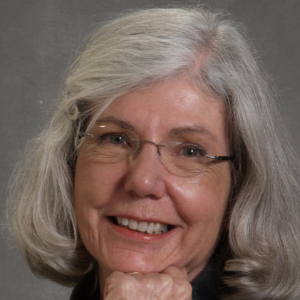Abstract:
Farmers in settler societies, such as the United States, viewed soil as the medium that held up the plants, despite advice from indigenous people about caring for the soil, agriculture moved west as eastern and southern soils were “worn out”. With the dust storms of the 1930s, there was concern for soil erosion and soil physics, and with the availability of chemicals to be used as fertilizers after World War II, soil chemistry became a concern – and a profit center for agro-chemical companies. Only relatively recently has soil biology – particularly microbiology – gain attention of researchers and some farmers. Although seed inoculants were used with some legumes to enhance nitrogen fixation, there was little appreciation of role of diverse microbes found in soil organic matter that impacted plant health. There is still no easy and reliable measure of soil microbial biodiversity. This paper traces the implications of how society frames soil and its health, how it is changing, and how that has impacted research and practice.
Biography:
Cornelia Butler Flora is Charles F. Curtiss Distinguished Professor of Agriculture and Sociology, Emerita, at Iowa State University, Research Professor at Kansas State University and served for 15 years as Director of the North Central Regional Center for Rural Development, a twelve state research and extension institute. She teaches Latin American History at Regis University and Rural Innovation at the University of Cordoba in Spain. She held of the Endowed Chair in Agricultural Systems at the University of Minnesota, head of the Sociology Department at Virginia Polytechnic Institute and State University, a University Distinguished Professor at Kansas State University, and a program officer for the Ford Foundation for the Andean Region and Southern Cone in Latin America. She is an adjunct professor in Faculty of Fitotecnia at the National Agrarian University of Peru in La Molina and in the Latin American Rural Development Program at the National University of Argentina, Camahue. She is past president of the Rural Sociological Society, the Community Development Society, and the Society for Agriculture, Food and Human Values, and a Fellow of the American Association for the Advancement of Science. She is author and editor of a number of recent books, including Interactions Between Agroecosystems and Rural Communities, Rural Policies for the 1990s, and Sustainable Agriculture in Temperate Zones. She wrote Pentecostalism in Colombia: Baptism by Fire and Spirit. Her latest book is Rural Communities: Legacy and Change, is in its 5th edition. She has been married for nearly 50 years to her co-author, Jan Flora, and they have two daughters and two sons-in-law, and three granddaughters.
She has over four decades of work on indicators of development around the community capitals: natural, cultural, human, social, political, financial, and built, both in the U.S. and in developing countries. Her current research addresses alternative strategies of community development and community-based natural resource management in the light of changing socio-technical regimes and climate change. Her Bachelor of Arts degree is from the University of California at Berkeley in 1965 and her M.S. (1966) and Ph.D. (1970) degrees are from Cornell University, where she received the 1994 Outstanding Alumni Award from the College of Agriculture and Life Science. She was president of the Boards of Directors of the Henry A. Wallace Institute of Alternative Agriculture, the Rural Sociological Society, the Community Development Society, and on the boards of several organizations, CONDESAN (The Consortium for the Sustainable Development of Andean Ecorregion), the Midwest Assistance Program, the Northwest Area Foundation, Winrock International, and the National Community Forestry Center and the National Agricultural Research, Education and Economics Advisory Board of USDA.



